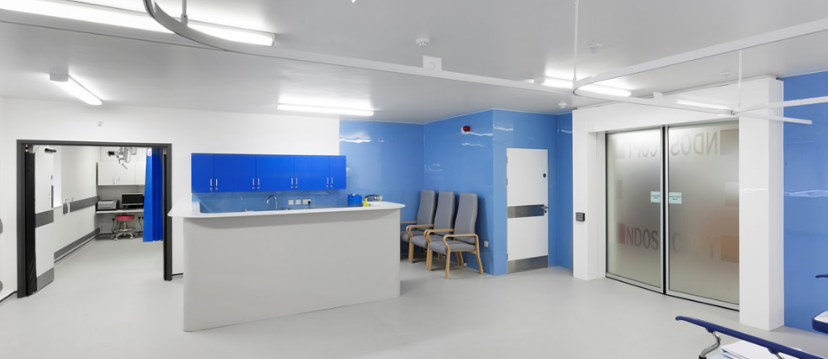Exploring the Benefits of Hygienic Wall Cladding
- tim7892
- Apr 16, 2024
- 2 min read
Hygienic wall cladding transforms cleanliness and hygiene across diverse environments, from commercial kitchens and healthcare facilities to residential bathrooms. This innovative solution provides a seamless, non-porous surface that is exceptionally easy to clean and maintain, making it crucial for maintaining sanitary conditions.
In this blog post, we delve into hygienic wall cladding, exploring its benefits and the materials used, such as PVC and acrylic, to help you understand which type suits your needs.
Industries Benefiting from Hygienic Wall Cladding
Hygienic wall cladding is proving indispensable in several critical sectors due to its ability to create a clean, safe environment:
Food and Beverage Industry: In places where cleanliness is critical, like commercial kitchens and food processing plants, hygienic wall cladding prevents bacterial growth and ensures food safety thanks to its moisture-resistant and easy-to-clean surface.
Healthcare Facilities: Wall cladding helps maintain sterile conditions and prevent cross-contamination in areas requiring stringent hygiene, such as operating rooms and patient care areas.
Pharmaceutical and Biotech Industries: These sectors rely on hygienic cladding to maintain controlled environments in manufacturing facilities and labs, minimizing contamination risks and ensuring compliance with strict hygiene standards.
Hospitality Sector: In hotels and restaurants, hygienic wall cladding is essential in kitchens and washrooms to meet high hygiene standards and simplify cleaning processes.
Educational and Institutional Buildings: Schools and colleges use hygienic cladding in washrooms and cafeterias where durability and ease of maintenance are needed due to high traffic.
Sports and Recreation Facilities: Gyms and pools benefit from cladding's moisture-resistant properties, which help maintain hygiene in wet areas and locker rooms.
Retail and Commercial Spaces: Malls, supermarkets, and shops install hygienic wall cladding in food courts and restrooms to ensure cleanliness and enhance aesthetic appeal.

How Hygienic Wall Cladding Works
Hygienic wall cladding involves several essential features:
Material Composition: Typically made from high-quality PVC or acrylic, these materials are chosen for their durability, moisture resistance, and ability to resist bacteria.
Seamless and Watertight Installation: Panels are cut to size and fitted onto walls using adhesives or mechanical systems, eliminating gaps that can harbour dirt or microbes.
Benefits: The cladding's non-porous surface prevents liquid absorption, making spills easy to clean. Its smooth surface also inhibits bacterial growth and is simple to maintain.
Ease of Cleaning: The cladding requires only standard cleaning solutions and minimal effort, saving time and maintaining a hygienic environment.
Aesthetic and Customization: Available in various colours and finishes, hygienic wall cladding can be tailored to fit the décor of any space, offering functional benefits without compromising on style.

Installation Process
Installing hygienic wall cladding is straightforward and less labour-intensive than traditional materials like tiles. The panels, typically made from lightweight PVC, are easy to handle and can be quickly secured to walls, providing a seamless and clean finish that enhances hygiene and safety.
Conclusion
Hygienic wall cladding is a versatile and effective solution that enhances cleanliness and hygiene across various settings. Whether you're a homeowner, business owner, or construction professional, understanding the benefits and installation of hygienic wall cladding can help you make informed decisions and ensure a cleaner, safer environment. Consider this solution to elevate hygiene standards in your space.
Why not view our full range at www.hygienicsheets.com





Comments